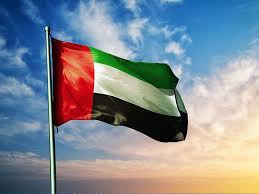UAE media regulation decree 2025 has been issued to regulate print, electronic, and digital media activities across the country. This decree aims to foster responsible journalism, encourage transparency, and create a supportive environment for media innovation. With rapid technological advancements and increasing digital content consumption, UAE media regulation decree 2025 ensures that media operations remain professional, accountable, and aligned with national objectives.
Objectives of UAE Media Regulation Decree 2025
The primary goals of UAE media regulation decree 2025 include:
- Promoting Ethical Practices: Ensuring that media outlets adhere to professional and ethical standards in reporting and content creation.
- Encouraging Innovation: Supporting the growth of digital and electronic media platforms to embrace new technologies and content formats.
- Strengthening Accountability: Establishing clear regulations for licensing, content oversight, and operational standards to maintain credibility.
- Protecting National Interests: Safeguarding the country’s cultural values and national security while enabling freedom of expression within the legal framework.
Key Provisions of UAE Media Regulation Decree 2025
UAE media regulation decree 2025 introduces several notable provisions to govern media activities:
- Licensing Requirements: All print, electronic, and digital media outlets must obtain official licenses to operate legally. This ensures compliance with quality, content, and operational standards.
- Content Oversight: Media content must adhere to ethical, cultural, and legal guidelines. Unlawful or misleading content is subject to review and penalties under the decree.
- Digital Platform Regulation: Online and social media platforms operating within the UAE must register with authorities and comply with content guidelines. This provision supports transparency and responsible digital media management.
- Advertising Standards: Advertising content must comply with national standards, ensuring honesty, accuracy, and alignment with UAE values.
Impact on Print Media
Print media in the UAE, including newspapers, magazines, and periodicals, will experience a structured regulatory framework under UAE media regulation decree 2025. The decree emphasizes accuracy in reporting, transparency in editorial processes, and accountability for published content. Print outlets will also benefit from guidance to adopt digital integration, enabling wider reach while maintaining professional standards.
Influence on Electronic Media
Electronic media, including television and radio, will see clear operational and content standards under UAE media regulation decree 2025. Broadcasters are required to comply with licensing regulations, adhere to ethical guidelines, and maintain accuracy in news reporting. This structured framework ensures that viewers and listeners receive credible and reliable information.
Transforming Digital Media
Digital media platforms, social media channels, and online publications will be directly impacted by UAE media regulation decree 2025. The decree promotes responsible online communication, reduces the spread of misinformation, and encourages digital innovation. Content creators, bloggers, and influencers are expected to follow registration procedures and comply with content standards, ensuring digital platforms are transparent and accountable.
Economic Implications
UAE media regulation decree 2025 also has economic impacts:
- Encouraging Investment: Clear regulatory frameworks attract domestic and international investment in media ventures.
- Job Creation: Licensing and content compliance create new employment opportunities in media production, editing, and regulatory compliance.
- Boosting Innovation: By supporting digital media growth, the decree encourages new business models and innovative media services.

Social and Cultural Benefits
The decree contributes to social cohesion and cultural preservation:
- Cultural Alignment: Content must reflect UAE values and traditions, supporting national identity while fostering a modern media landscape.
- Responsible Communication: The decree promotes responsible reporting, protecting communities from harmful or misleading content.
- Public Awareness: Clear media standards improve citizens’ trust in media and increase public awareness of current events and national priorities.
Challenges and Adaptation
Implementing UAE media regulation decree 2025 may face challenges, including adaptation by media outlets and digital creators. Traditional media may need to adopt new digital tools, while digital platforms must ensure compliance with registration and content oversight procedures. Continuous training, workshops, and guidance from authorities will support smooth transition and compliance.
Long-Term Vision
UAE media regulation decree 2025 aligns with the nation’s broader vision of technological advancement, innovation, and sustainable development. By balancing media freedom with accountability, the decree aims to create a resilient media environment that supports national priorities while embracing modern communication trends.
Global Influence and Best Practices
The decree positions the UAE as a leader in media regulation in the region. By adopting global best practices for ethical journalism, digital innovation, and content accountability, UAE media regulation decree 2025 provides a model for neighboring countries seeking balanced media oversight.
Conclusion
UAE media regulation decree 2025 represents a transformative step for the country’s media sector. By regulating print, electronic, and digital media, the decree fosters responsible journalism, supports innovation, protects cultural values, and ensures public trust. With clear guidelines and a focus on accountability, UAE media regulation decree 2025 creates a sustainable, forward-looking media ecosystem that balances freedom of expression with ethical and professional standards.
Do follow us: Instagram
Read More: Sports Psychology Programs Supporting Athlete Performance in Oman



